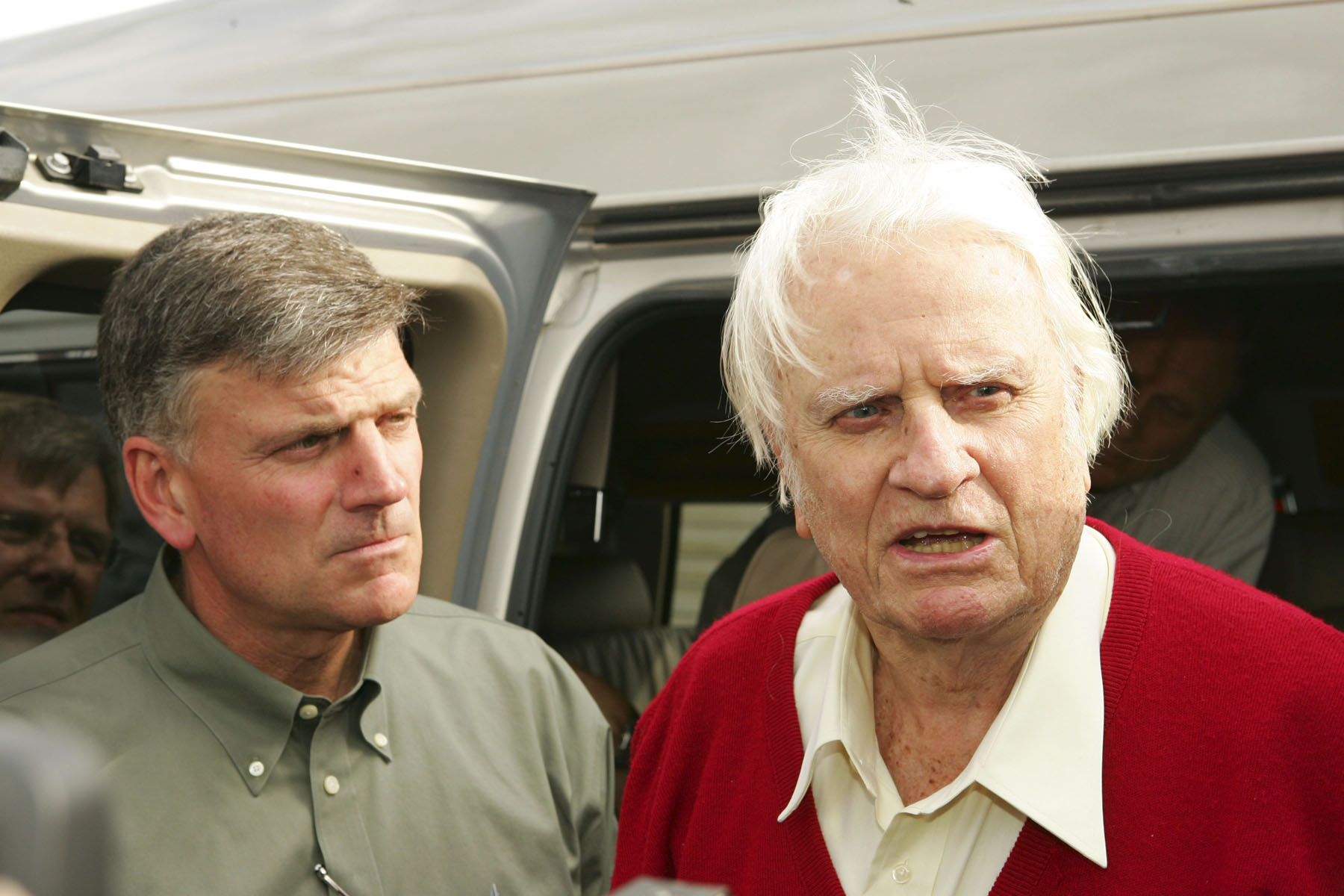
NEW ORLEANS (BP)–Billy Graham, fielding a reporter’s question about the great lesson that can be learned from Hurricane Katrina, responded, “That there is much more to life than material things.”
The 87-year-old evangelist answered the query without hesitation and added, “There is a moral and spiritual strength that is needed not only in New Orleans and the Ninth Ward, but it is needed everywhere.
“We are living in a very tumultuous period in history,” he reflected. “With Katrina’s aftereffects and the war in Iraq and all these things going on, if ever the country needs to turn to God it is now.”
Graham’s comments came during a March 8 tour of communities in the hurricane-ravaged New Orleans area with his son Franklin.
The Grahams are in New Orleans for a two-day “Celebration of Hope” crusade. The elder Graham originally wasn’t scheduled to take part in the March 11-12 outreach but told his son that New Orleans had really been “a burden on my heart” and that he wanted to come.
Winding through blocks of utterly destroyed homes, some resembling kindling, the van carrying the Grahams came to a halt just a few blocks from where a levee had failed during the hurricane.
Franklin Graham helped his father ease out of the vehicle. Appearing on the frail side, Billy Graham did not try to walk about.
With a noisy backdrop provided by trucks carrying away debris and flooded cars, along with the relentless pounding of a pile driver working to repair the damaged levee, the Grahams interacted with reporters.
“My heart goes out to the people who lived here, who had their dreams and hopes like everybody, and now they are all gone,” Billy Graham said. “My prayers are going to be more intense for the people who live here.”
Later, Franklin Graham said his father’s reaction at every turn was, “Oh, my!” He added that his father compared the scenes to Hiroshima and Nagasaki, Japan, after atomic bombs were dropped in World War II.
“Now I know a little bit about what I’ve read and heard, and I thought I read it all” concerning the devastation wrought by Hurricane Katrina, Billy Graham said, “but it doesn’t compare to what you see in a few minutes of the tour of this area they have taken me through today.”
After several minutes of speaking, Billy Graham quipped, “I am sorry I’m so crippled,” referring to the effects he suffers from Parkinson’s disease and a recently broken hip. Later, he was helped back into the van before departing the scene.
Franklin Graham, who is the head of both the Billy Graham Evangelistic Association and the international relief organization Samaritan’s Purse, stayed behind to interact with reporters.
“We were asked to come last fall,” Franklin Graham said when asked why it was important that he and his father come to New Orleans. “The pastors in the area believe one of the great needs of the city is spiritual and asked if we would come.”
Graham indicated that when people lose hope they lose the desire to live. He shared that through a relationship with Jesus Christ people could discover hope and realize that they can get on with their lives even after a tremendous tragedy like Katrina.
Asked if there is a meaning to Katrina, especially related to the “civic sins” of New Orleans, Graham responded, “I think there is a lot of meaning in the aftermath of Katrina.
“I know a lot of people have asked the question: ‘Is this God’s judgment?’” Graham said. “I’ve no idea, and I don’t believe it is. Because good people lost homes. Churches were destroyed.
“The pastors feel that one of the great things that has come since the storm is the uniting of the city, bringing different races together … churches working together…. [T]his is a positive benefit that we see as a result of this storm.”
Touring the area with the Grahams were two local pastors, David Crosby of First Baptist Church of New Orleans and Bishop J.D. Wiley of Life Center Cathedral located in the area known as Algiers.
Crosby’s church was relatively undamaged, but lost most of its congregation in the first months after the storm. Wiley’s church was severely damaged and remains unusable; six months after the storm, he holds services in a nearby tent.
“Some people see the Mardi Gras celebration and think, ‘Wow, New Orleans is back -– isn’t that great,’” Franklin Graham observed. “It’s not back and there is going to be a need for volunteers, for church groups to continue to come to this community … I think for years.”
–30–

















